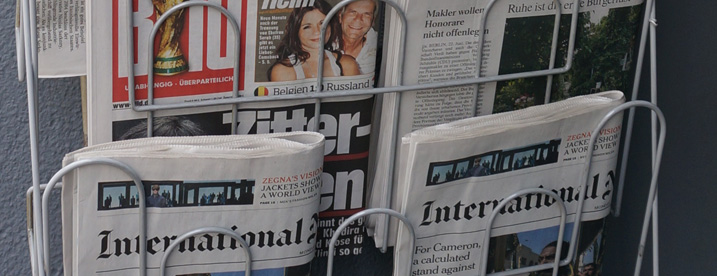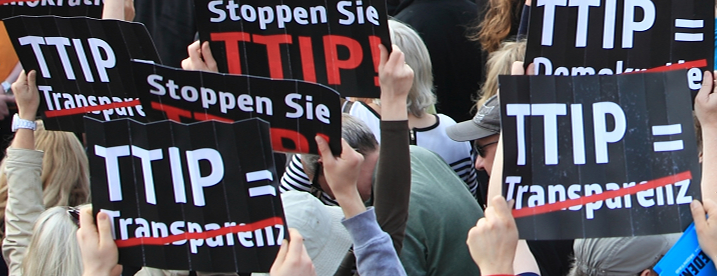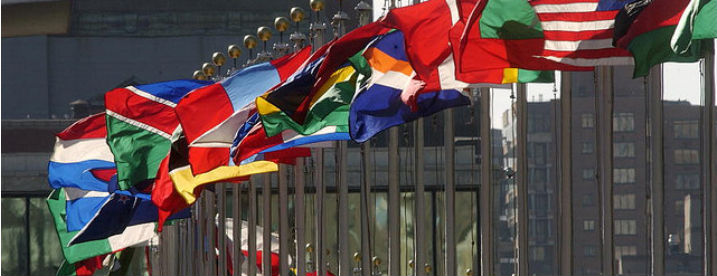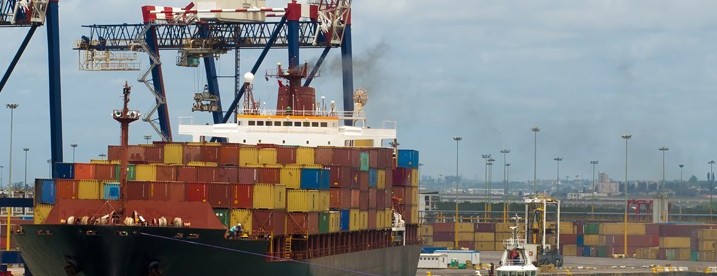By Michele Fletcher, July 18, 2014

More Transparency and Accountability Are Needed, if Tanzania Is to Truly Benefit from its New-Found Gas Reserves
Tanzania’s new-found gas reserves are valued at an estimated $20 billion. Many look at these prospects with optimism, as this revenue may help Tanzania achieve its goal of becoming a middle-income country by 2025. But for others, the situation is more precarious.
Tanzania has been in the same situation when it became a major source of gold not even two decades ago. Today, though Tanzania is still the third largest exporter of gold, there is widespread agreement that the mining sector did not produce the revenue it should have, nor was the effect of the growing industry felt in the population. Tanzania still stands 152nd out of the 182 countries on the Human Development Index, despite having exported billions of dollars worth of gold throughout the past two decades. The value of Tanzania’s mining exports grew to $1.5 billion in 2010, but annual government revenue from its sale was only about $100 million, or about 7%.
By Clark Gascoigne, July 17, 2014

Thomson Reuters Foundation Seeks Applications from African Media for Illicit Finance Training and Assistance Program by July 28th
Are you an ambitious journalist in Africa with an interest in probing illicit finance, money laundering, and tax related abuses? Or, perhaps, you represent an outstanding, independent media organization based in Africa with a desire and reputation for exposing financial crime and corruption?
Either way, the Thomson Reuters Foundation is launching a new three-year program assisting African media on the reporting of illicit finance and tax abuse, and they are hoping that you will apply. According to the TR Foundation:
African economies lose huge sums of money every year through practices such as tax evasion and avoidance, often carried out by large companies. However, this phenomenon receives little attention and is rarely the subject of in-depth investigation.
Thomson Reuters Foundation believes that African media has a vital role to play in bringing this issue to light and exposing tax abuse where it is taking place. We also believe that collaboration between journalists and media organisations across borders is essential when reporting on money flows between countries.
We are seeking outstanding journalists and ambitious, independent media organisations to join us in this new project.
By Michele Fletcher, July 16, 2014

Reforms Will Need to Be Further-Reaching and Institutionally Minded if China Hopes to Truly Curb Corruption and Illicit Financial Flows
The coverage of China’s financial sector has been quite the roller coaster of late: from President Xi Jinping’s anti-corruption campaign to bad loan collateral to CCTV’s exposure of the Bank of China’s “money laundering” schemes, it’s hard to discern the emerging country’s financial status.
However, one thing remains eminently clear: China has a deeply systemic illicit financial flow problem. It comprises both the individuals singled out in Xi’s purge (and a myriad of those who are not) as well as the corporations that facilitate this illegal behavior. According to our research, China remains the largest exporter of illicit money, with over a trillion dollars flowing illegally out of the country from 2002-2011:
By Michele Fletcher, June 20, 2014

The Transatlantic Trade and Investment Partnership seeks to unite U.S. and EU markets: a gigantic trade deal uniting over 800 million consumers across the United States and the European Union, and yet all its important documents remain shielded...
By Grace Zhao, June 20, 2014

Capable and effective institutions and the rule of law benefit all sustainable development goals.
This is one of the arguments brought up by a number of NGOs, including Global Financial Integrity, in an open letter to the UN’s Open Working Group. Scroll down to read the open letter.
The Open Working Group is a 30-member group of the General Assembly of the UN that is responsible for preparing sustainable development goal proposals. As the deadline for the Millennium Development Goals approaches, an action plan for post 2015 has started. The Open Working group was established in January 2013 to draft a series of objectives for the post 2015 development agenda.
The Open Working Group has proposed 17 Sustainable Development Goals to be obtained by 2030, one of which is Goal 16.
By Tom Cardamone, June 16, 2014

GFI Calls for the Adoption of a Sustainable Development Goal (SDG) Aimed Strictly at Halving Illicit Financial Flows from Trade Misinvoicing by 2030
Since the beginning of the year, the UN’s Open Working Group (OWG) has been wrestling with a nearly herculean task: to winnow a set of roughly 200 suggested Post-2015 sustainable development goals (SDGs) down to about a dozen. The process will culminate with the list being presented to the UN General Assembly (UNGA) during its annual meeting in September. The UNGA will then have one year—until the next UNGA meeting—to consider and, perhaps, amend the list. By September 2015, the international community’s roadmap toward sustainable development will be set in stone for the next 15 years. Simply put, there is a lot riding on what the OWG does in the next three months.
The current list of potential OWG recommendations covers the gamut from reductions in corruption to significant improvements in clean water, education and health care. While Global Financial Integrity (GFI) is pleased to see that the OWG has included a target to reduce illicit financial flows (IFFs)—which are estimated at close to $1 trillion annually—we believe the language as currently drafted is flawed.
As written, the IFF target (goal 16.3) is coupled with numerous other issues—including reductions in organized crime, human trafficking, and drug smuggling—making it unwieldy, unmeasurable and, as a result, unachievable. We believe a concise SDG target on IFFs will have a far greater chance of being proposed by the OWG and approved by the General Assembly.
By Michele Fletcher, June 11, 2014

Boko Haram developed from social unrest, poverty, and a strong disillusionment with the corruption of the Nigerian government. Today, the same factors make Boko Haram lethal.
Nigeria’s rampant corruption has left the nation unequipped to deal with security concerns, especially along porous borders through which Boko Haram receives immense support. A look at one of their videos reveals an immense amount of weaponry that is not only costly, but very difficult to obtain.
Boko Haram is capitalizing on the destitute and weak areas in the north of Nigeria to extract money from civilians, as well as financial opacity to receive funding from international criminal networks, and channel it towards arms acquisition from abroad: one of many examples of the inextricable link between financial concerns and national security.
By Michele Fletcher, June 10, 2014

On Wednesday, representatives from the Senate, European Embassies of Luxembourg, the Netherlands, and anti-corruption NGOs, including GFI’s Tom Cardamone, gathered in the U.S. Senate’s Kennedy Caucus Room to discuss the growing dangers of illicit financial flows in Europe as major contributors to the European financial crisis.
U.S. Senator Jeff Sessions (R-AL) spoke about his experience with Russia’s systematic aggression in the Balkan areas, and advised they take a stronger stance against Russian encroachment. Dependence on American financial and military hegemony in the region is not a sustainable security solution, he added. Sessions, who also served as Attorney General of Alabama, urged that Central and Eastern Europe push for anti-corruption and transparency laws.
I am convinced that prosperous and open societies make the world better. The values of financial integrity are exactly what we need.
All agreed that financial integrity is the linchpin of stability and security. Hon. Becky Norton Dunlop, Vice President of the Heritage Foundation, said:
Ensuring transparency is key to dealing with corruption.
This is not just a Republican issue. This is not just a Democratic issue; this is an issue for all Americans.
The crisis in Crimea was preventable, argued Natasha Srdoc, Chairman of the Adriatic Institute for Public Policy. Regional stability is greatly undermined by Western European banks promoting fraudulent transactions in the Balkans. Had Ukraine formally broken its ties to Russia and joined the EU, it could have deterred Russia from annexing Crimea. Yet joining the EU may also have exposed the corruption schemes of Ukrainian elites, including that of former President Viktor Yanukovych and former PM Pavlo Lazarenko, whose own anonymous shell company was based in Wyoming.








